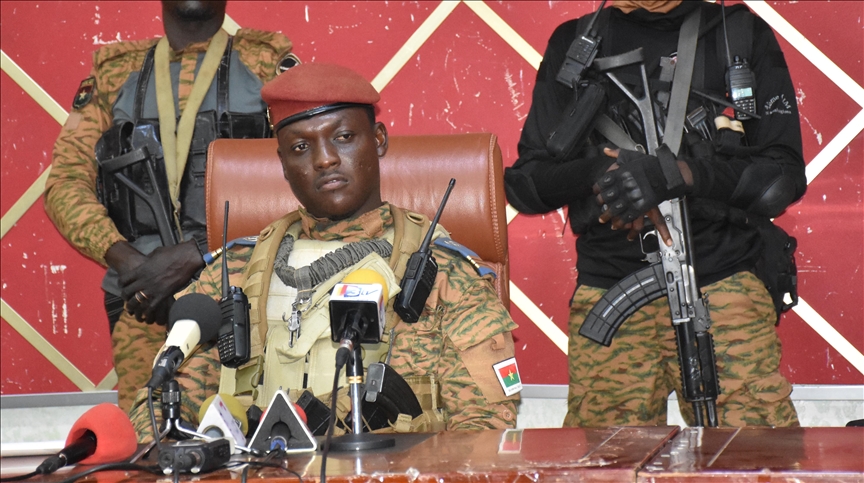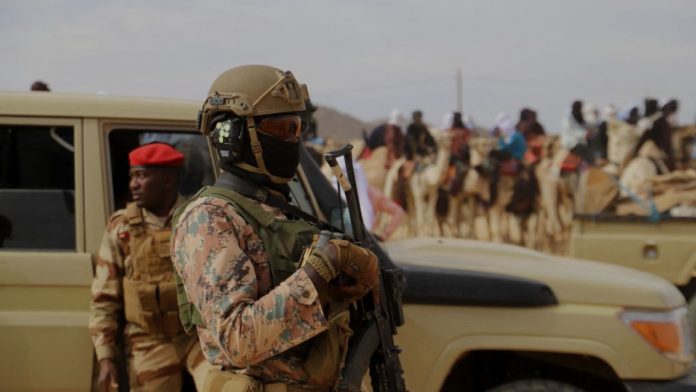Facebook Twitter (X) Instagram Somali Magazine - People's Magazine
The Burkina Faso army has confirmed the elimination of 103 terrorists, including a key al-Qaeda leader, in a military operation near the village of Nabadi in the Koulbiligou region. The operation took place on July 31, marking a significant victory in the country’s ongoing battle against terrorism.
Burkina Faso Successful Counterattack Despite Heavy Odds
An official statement released by Burkina Faso’s news agency detailed how an army patrol was attacked by hundreds of militants in the eastern center of the country. Despite being outnumbered, the soldiers successfully repelled the attack, leaving 103 militants dead on the battlefield. Among the casualties was Dicko Tidjane, also known as “Abu al-Darda,” a prominent leader within al-Qaeda.

Death of Abu al-Darda in Burkina Faso: A Devastating Blow to al-Qaeda
Abu al-Darda, a 37-year-old citizen, had been a significant figure within al-Qaeda, leading a group of approximately 250 fighters. He was responsible for numerous terrorist attacks targeting security forces and self-defense militias. His death is seen as a major setback for the terrorist organization, which has been active across West Africa.
The Sahel: A Hotspot for Terrorism
Burkina Faso, located in Africa’s expansive Sahel region, has become a focal point in the struggle against terrorism in West Africa. The country, along with its neighbors, has been grappling with a persistent and growing threat from various terrorist groups, many of which have ties to global extremist networks like al-Qaeda and ISIS. These groups have exploited the region’s complex social and economic challenges, as well as its geographic characteristics, to establish strongholds and operate with relative freedom.
The criminal activities associated with these terrorist organizations are extensive and devastating. They include mass killings of civilians, kidnappings for ransom, drug trafficking, arms smuggling, and attacks on both government forces and local self-defense militias. These acts of violence have not only destabilized communities but have also displaced hundreds of thousands of people, exacerbating an already dire humanitarian situation in the region.
The Sahel’s geography plays a critical role in the ongoing conflict. The region’s vast and often inhospitable terrain, characterized by deserts, semi-arid plains, and sparse vegetation, presents significant challenges for law enforcement and military operations. The lack of infrastructure, including roads and communication networks, further complicates efforts to monitor and control the activities of terrorist groups. This difficult landscape allows militants to move across borders with ease, evading capture and launching attacks in multiple countries.
Moreover, the socio-economic conditions in the Sahel have contributed to the proliferation of terrorism. High levels of poverty, unemployment, and lack of access to education and healthcare create an environment in which extremist ideologies can take root. For many young people in the region, joining a militant group can seem like the only viable option for survival, especially in areas where state presence is weak or nonexistent.
In response, countries like Burkina Faso have been working with international partners to bolster their military capabilities and improve coordination in the fight against terrorism. However, the scale of the challenge is immense, and the need for a comprehensive approach that includes not only military action but also efforts to address the underlying social and economic issues is increasingly recognized as essential to achieving lasting peace and stability in the Sahel.
Burkina Faso’s Continued Fight Against Extremism
In response to the ongoing threat, Burkina Faso’s military has intensified its efforts to combat terrorism. This latest operation represents a crucial victory in their broader campaign to restore peace and security to the region. The government remains committed to eradicating extremism and protecting its citizens from further attacks.

